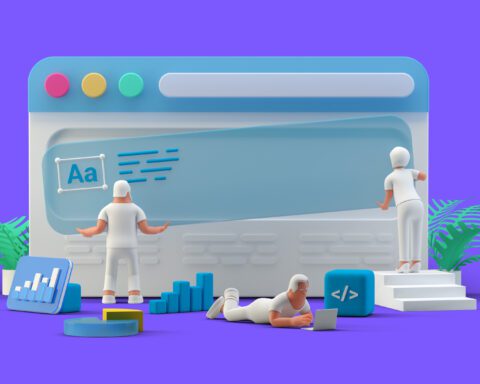If you’re an aspiring software architect preparing for your big interview, you probably have a multitude of questions swirling in your mind. How should I prepare? What are the essential skills I need? What kind of software architecture interview questions will I face? Don’t worry, you’re not alone in this journey, and we are here to help!
Preparation Strategy: Your Key to Success
The first and most crucial step to acing your software architecture interview is adequate preparation. Let’s explore how you can methodically prepare to outshine your competition.
Strengthen Your Basics
The journey to becoming a successful software architect begins with a solid understanding of the basic principles of software architecture. You should have a clear understanding of various architectural styles, including Layered, Event-Driven, and Microservice architectures, among others.
Knowledge of design patterns, such as Singleton, Factory, and Model-View-Controller (MVC), is also essential. You should be able to explain these concepts, compare them, and discuss their strengths and weaknesses. Additionally, make sure you’re comfortable with architectural documentation, which describes the system’s structure and behavior.
Be Well-Versed With the Tools of the Trade
As a software architect, your toolkit should be robust and up-to-date. You’ll need to know how to use UML for visualizing, specifying, and documenting software systems. Familiarity with tools like Architectural Decision Records (ADRs) or software like Microsoft Visio will demonstrate your ability to document and communicate your architectural decisions effectively.
Apply Theory to Practice
While having a good theoretical foundation is necessary, being able to translate this theory into real-world applications is paramount. The interview panel will be interested in seeing how you apply architectural principles to solve complex problems.
Working on case studies and discussing real-world architecture problems will give you a valuable edge. You could discuss architectural decisions made in popular software applications, trade-offs considered, and how those decisions affected the software’s scalability, reliability, and performance.
Develop Your Soft Skills
As a software architect, your role will be much more than designing software systems. You’ll also need to communicate your design effectively, guide your team, and make crucial decisions. You should demonstrate leadership skills, decision-making capabilities, and excellent communication.
That’s half the preparation battle won!
Decoding the Common Questions
The phrase “software architecture interview questions” can send chills down your spine if you’re not adequately prepared. However, rest assured, these questions are designed to assess your understanding of software architecture, your ability to solve problems, and your communication skills.
One of the most common questions you might face is, “Can you describe a software system you’ve designed?” This question aims to understand your design approach, your decision-making skills, and your ability to handle challenges.
While responding, highlight your thought process and the architectural decisions you made. Discuss the trade-offs you considered, the challenges you faced, and how you overcame them.
Let’s delve into the fundamental components of software architecture. Familiarity with these components will arm you with the knowledge to design efficient and effective software systems and will serve as a backbone to answer a range of software architecture interview questions. For a more detailed look at common questions check out Indeed’s most common Software Architecture Interview Questions.
Components
Components are the building blocks of a software system. These are modular, deployable, and replaceable parts of a system that encapsulate the functionality and/or data served by the system. Understanding how to correctly identify and design components is a key skill for a software architect.
Connectors
The architecture of a system is not just about its components, but also how these components interact with each other. This interaction is facilitated by connectors, which can be anything from simple method calls to complex database connections.
Configuration
Once we have our components and connectors, we need to define their arrangement, which is termed as ‘configuration’ in software architecture. This includes the layout of components and their interactions through connectors.
Constraints
Lastly, constraints form the rules that dictate the architecture of the system. These may include hardware limitations, language-specific constraints, and design principles that must be adhered to. Understanding these constraints can help you design a system that is efficient, reliable, and maintainable.
A thorough understanding of these fundamental components will not only help you design robust software systems, but it will also make you a stronger contender in the interview.
Essential Skills for a Software Architect
Now, let’s move on to the question you’ve probably been asking yourself, “What skills do I need to be a successful software architect?” Here are the top three:
Technical Competence
Technical competence is the cornerstone of a successful software architect. It includes a strong understanding of system design, programming languages, data structures, and algorithms. This also encompasses the ability to understand and make decisions about trade-offs, which is essential for any software architect. Check out our series of Tutorials and How-To guides to help you develop your technical competence from the ground up!
Communication Skills
Being able to communicate your ideas effectively is as important as coming up with them. As a software architect, you’ll often find yourself explaining complex systems to stakeholders and your team. Therefore, excellent written and verbal communication skills are crucial.
Leadership
Software architects often lead the team in developing and implementing a system. This requires decision-making, problem-solving, and team-leading skills. A good leader can guide a team towards effective execution of a project while ensuring a collaborative and respectful work environment.
By focusing on these three key skills, you’re setting yourself up for success in your future role as a software architect.
In Conclusion
Preparing for software architecture interview questions may seem daunting, but with a systematic approach to understanding the basics, applying theory to real-world problems, understanding the architecture’s components, and honing key skills, you are well on your way to acing the interview. Remember, the key lies in balance: Balance between theory and practice, technical acumen and soft skills, and between learning and applying. Here’s to acing your software architecture interview and landing your dream job!





